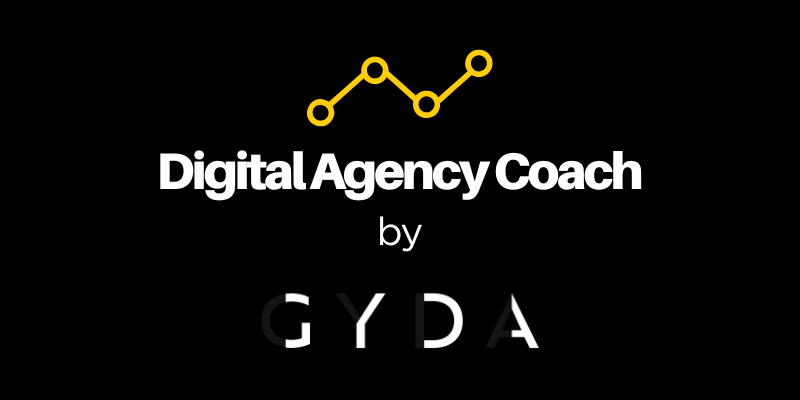How to win more pitches as a digital agency
Many of the agencies I work with live, sleep, eat and dream in a highly complex world. Website development, advertising strategies, behavioural profiling, user experience, customer segmentation; it’s all complex and requires experienced consultants to produce and deliver at a high level of quality.
The problem is that the complexity they love and work within is not the thing that their client buys. Their clients buy:
Increased brand awareness
Increased sales to deliver on marketing KPIs
Beautiful artwork
Great visibility on search engines
Recognition from their peers
More time and less stress for themselves
Essentially their clients buy the results and output from the agency, not the stuff the agencies do to deliver the results.
So what?
The successful agencies are those that understand the needs of their customers and engage in a sales process where they focus on the pain/hurt/want/need of the customer and propose a results-oriented solution. A solution that solves the pain of the customer, and gives the client the gain they are looking for (the Value Proposition Canvas is a great method for unearthing this - https://strategyzer.com/canvas/value-proposition-canvas).
The REALLY successful agencies (who win more clients at pitch/proposal than they lose) understand this AND also tailor their responses when trying to win business to suit the personality type of the client.
Urrrghhhh, this sounds like a lot of work right? Not necessarily…
DISC Profiling (the sometimes hated friend of large businesses) provides a simple mechanism for understanding what makes a person (in this case your potential client) tick. It’s a broad-brush approach and ignores the minor detail. However, when integrated into a well-polished sales process it can make the difference between a 20% closing rate and 66% closing rate.
The premise is: DISC Profiling places people into 4 categories, Reds, Blues, Greens, Yellows. Each group behaves differently and expects different things from you in order for the relationship to flourish.
‘D’ is for Dominance
They are the ‘alphas’. They are more interested in results than detail. They want to know when your product will start to deliver results and what results they’ll get. They won’t read the large report you send them and they will expect you to say ‘how high?’ when they say ‘jump’. They need you to think fast, move fast and deliver fast. They’d rather receive a concise executive summary from you tomorrow than a detailed proposal in a week’s time.
‘I’ is for Influence
They are the ‘creative socialites’. They are those at the back of the classroom making noise, not listening and instead they gossip about who did what and when. They want to chat (a lot) and you’ll find it hard to keep them on subject. They’re interested in who you’ve worked with and what you did for them so that they can bask in your reflected glory. They want their social status to improve as a consequence of working with you. You need to state the real-world benefits (not the numbers) that your results provide and how it impacts them. They’re not interested in the detail; keep them happy, deliver when they ask for it and they are a friend (customer) for life; just don’t show them up in front of their peers.
‘S’ is for Steadiness (the ‘Greens’)
They are the ‘cautious carers’. They need qualitative detail and will take a long time to convert. They need the help of others to guide their opinion and they will want you to hold their hand through the process. They fear the unknown and are scared of risk. They need constant contact, nurturing and a bit of love to guide them through to completion. If they are not the decision-maker you may need to reach out to who’s calling the shots to help the ‘Green’ along the journey.
‘C’ is for Correctness (the Blues)
They are the ‘analysts’. They need the numbers, detail, stats and KPIs. They expect your proposal (and any subsequent work you do for them) to be 100% correct all of the time. For heaven's sake don’t send them a proposal with a typo in it! Equally, make sure you don’t over-promise as they’ll remember every detail and hold you to account for years to come. They’re likely to understand the complexity in what you do and can be more interested in what you do and how you do it rather than the results that you generate. They typically work with ‘data’.
The reality is that most people sit somewhere between two profiles (if we were all the same then life would be pretty boring), but broadly speaking DISC profiling works.
Summary
Everyone knows that ‘people buy from people’, but it's important to understand that we’re selling to people (not faceless companies) too, and not everyone thinks and behaves the same. Remember that your potential new client has a personality and that your response should be tailored to suit how they think and behave. Respond in the wrong way and you’ve probably turned them off for life. Support their needs and talk to them in their language and watch your closing rate skyrocket.
